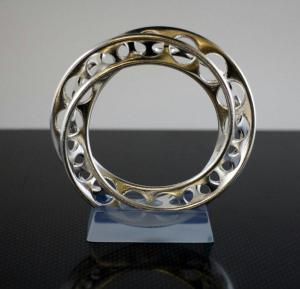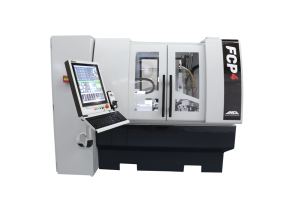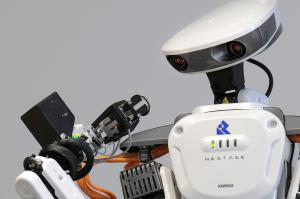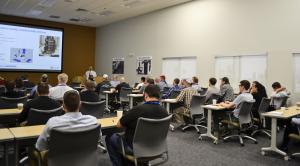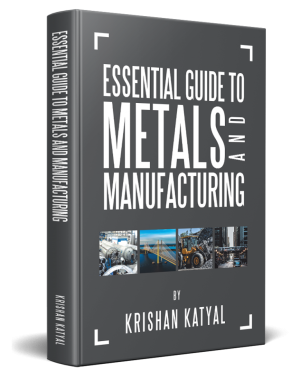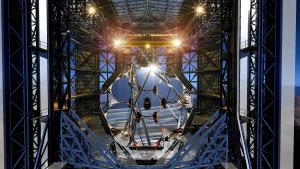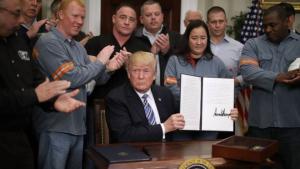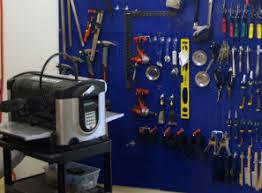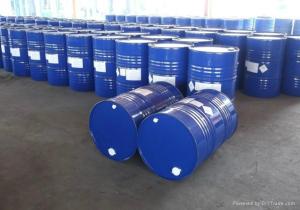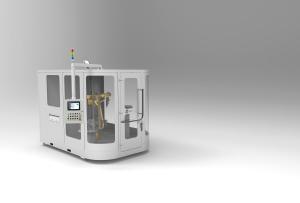Blogs for all/
Depending on whom you ask, you’ll receive wildly different unravelings of the acronym DFAM. To music aficionados, DFAM might mean “drummer from another mother,” clever branding from Moog Music Inc. to describe its newest line of percussion synthesizers. I wish I’d thought of that phrase. DFAM could mean the Darlington Farmers Auction Mart but probably only to those who live near there in England and are interested in buying a cow, goat or sheep. At The Walt Disney Co., DFAM refers to the extended family of employees who share the stress of working at the Magic Kingdom—as in, “I’m going to chill this weekend with my DFAM before the big Labor Day rush.” Then there’s the DFAM that manufacturers care about—or rather the additive manufacturers. That’s because DFAM is short for “design for additive manufacturing,” an acronym every bit as relevant to machinists as it is to people in 3D printing.
MC Machinery Systems is known as a supplier of Mitsubishi EDMs and laser machines, and Mitsubishi EDM/Laser is prominently displayed on the company’s headquarters in Elk Grove Village, Illinois, but several seminars focused on hard milling and 5-axis machining were presented during its EDM National open house. The event took place Sept. 26.
My Nov. 20 blog post titled "Manufacturers favor a digital workplace transformation but hold tight to their wallets" generated an insightful response from Jesse Z. Melton, owner of Harpers Ferry Toolworks.
Not every holemaking job requires a high-performance, solid-carbide or PCD-tipped drill with an advanced coating. For many, a HSS jobber drill will suffice.
Not only is automation continuing to displace workers at manufacturing companies, the thought of being ousted by a robot is making some workers at those plants feel sick. That’s according to a study by three Ball State University researchers and a Villanova University professor.
BIG KAISER Precision Tooling Inc. held its Breakfast & Learn 2018 open house May 8-10 at its headquarters in Hoffman Estates, Ill. Each day include a technical presentation. On the third day, John Zaya, workholding product manager for BIG KAISER, covered multiple-axis, quick-change workholding systems.
To gain more knowledge about Industry 4.0 developments, I participated in the Taiwan Smart Machinery Media Tour Aug. 20-24. The Taiwan External Trade Development Council hosted the event. The council reports that Taiwan has the highest density of precision machinery cluster in the world, exports almost 80 percent of its products and is the fifth largest export country for machine tools.
Continuous learning, continuous improvement, continuous generation of ideas—they’re all important things. I would like to think they’re especially important to manufacturers but am struggling to come up with a specific reason. Every business, from floral arrangers to drywallers, must continually adapt and evolve or face eventual corporate death. Perhaps the reason continuous learning and improvement are so relevant to manufacturing, which in this context means machining, is that our industry is one of the fastest changing in terms of technology.
After a bit of a hiatus, I received a new book about metalworking, “Essential Guide to Metals and Manufacturing” by Krishan Katyal. The author is a mechanical engineer who has worked for four decades designing and manufacturing machine tools, consumer appliances, diesel-electric locomotives and heavy concrete construction products for Chicago area companies.
For those who want to enhance a CNC by adding capabilities, Chris Robson, applications engineer for Minneapolis-headquartered machine tool dealer Concept Machine Tool – (Delafield) Wisconsin, gave a presentation titled “What Else is Inside this Box? Open Architecture CNC.” His seminar took place Oct. 3 at the 15th biennial Wisconsin Manufacturing & Technology Show in the Exhibition Center at the Wisconsin State Fair Park, Milwaukee.
Imagine a beam of light traveling unimpeded for 13.5 billion light years, only to get deflected and distorted just before being captured by a telescope. That is something the builders of the Giant Magellan Telescope are working hard to avoid.
There’s a Sands Casino where the Bethlehem Steel Corp. once stood. The casino was completed in 2009, just 8 years after the 100-year-old steel company filed bankruptcy. Ironically, the biggest obstacle facing the casino’s developer was a shortage of structural steel. Even more ironically, the developer ended up buying it from Nucor Corp., the onetime “minimill” competitor that Bethlehem executives scoffed at decades earlier for the startup’s embrace of electric arc furnace technology.
I admit to some bias against school. From about fifth grade on, our educational system and I were rarely on speaking terms. Think oil and water rather than peas and carrots. Needless to say, I left at my earliest opportunity. Aside from that thing with my daughter pulling the fire alarm, my kids were far better students. So when it came time for them to make the big decisions, I kept my opinion to myself and did what most parents do these days: Encourage them to get their college degrees.
I’m not a morning person. If it were up to me, all alarm clocks on Earth would be rounded up and smashed with a giant hammer, their electronic corpses left to rot in a landfill far, far away from my home in Tucson, Arizona. I’m not sure what people on other planets do about the whole alarm clock situation, but I assume they are more advanced than humans and therefore late sleepers like me. Unless my dad’s predictions about the looming extraterrestrial invasion are accurate, however, we’ll never know.
I recently read an article discussing how the Environmental Protection Agency will now allow asbestos-containing products to be manufactured and sold in the United States on “a case-by-case” basis, apparently reversing parts of the organization’s 1963 Clean Air Act and the 1989 Asbestos Ban and Phase-Out Rule. While that’s good news for the mesothelioma attorneys you see every night on TV, it’s bad news for American workers, a number of whom will soon be tasked with mining and processing the dangerous material once known as “the magic mineral” for its heat, electrical and chemical resistance.
As manufacturers continue to be challenged by a shortage of skilled workers and the need to boost productivity, automation remains a topic of significant interest. That was certainly the case at the Wisconsin Manufacturing & Technology Show. The biennial trade show took place Oct. 8-10 at the Exposition Center at Wisconsin State Fair Park, West Allis, Wisconsin.
I’m one of those annoying people who stays current on technology. I store my stuff in the cloud, patch my software religiously and have my fifth smartphone in as many years. Despite my geeky tendencies, however, I’m apprehensive about the effect that Industry 4.0 and the industrial internet of things will have on … well, the industry. Call it smart manufacturing if you like, but many shop owners and managers—especially those who grew up with black-and-white TVs and rotary phones—might secretly call it scary manufacturing instead.
For our February issue’s Industry Briefs department, I’m writing an article about the Deburring Application Laboratory at Matrix Design LLC. The company designs, builds and installs robotic automation systems for deburring parts, as well as machine tending and material handling.
Rollomatic Inc. hosted an open house Nov. 7-9 at its headquarters in Mundelein, Ill. In addition to displaying the latest Rollomatic and Strausak grinding machines, as well as a Platit tool coating machine, the event offered attendees an opportunity see a demonstration of Rollomatic’s software for Industry 4.0.
I recently spoke with Afzaal Mir, founder and owner of toolmaker FSC Cutting Tools Technology LLC, Greenville, S.C., about his business and life.

